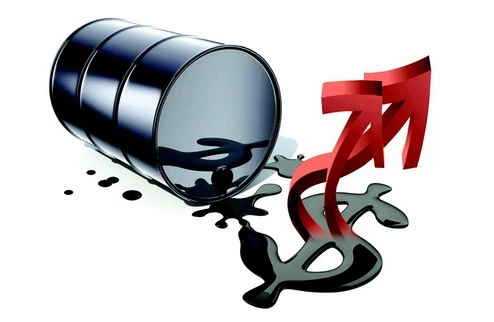It was reported by foreign media on September 1 that the EU was prepared for gas cease of Russia. Therefore, the EU may ban gas exports and limit the amount used in the industry to assure household energy supply this winter. Russia is Europe's largest supplier of oil, coal and natural gas, and the both side emerged disputes due to Russia’s action in Ukraine. Pipelines to the West through Ukraine were not the first time used as a bargaining chip in a political game.
Ukrainian authorities warned that Russia planned to stop supply, while Russia said that Ukraine might steal energy supposed to be delivered to the EU countries. The EU has just threatened that if Moscow does not withdraw troops from Ukraine, it will implement new sanctions. Although Europe can quickly find new suppliers of oil and coal, most Southeast Europe countries still depend on the gas supplies from Russian state-owned enterprises.
LNG supply of Qatar and Algeria is shipped to Europe across the Atlantic and the Mediterranean ports, but European buyers often increase prices of these shipments abroad rather than meet domestic market. It is said that European Commission is considering a prohibition against reselling to increase reserves.
“In the short term, we are very worried about the winter supply situation in Southeast Europe.” said a messager who is directly aware of EU contingency plan. He disclosed that once the supply was cut off, the EU hoped to prevent outflow of liquefied natural gas and limit industrial gas consumption, in order to protect the family usage.
The EU Energy Executive Committee expressed last week during the negotiations with Russia and Ukraine that the EU is developing "alternative plan" to ensure the supply of natural gas under the worst circumstances. Politicians and industry sources pointed out that regardless of what action the EU may take, if the gas supply of Russian to Europe was cut off, it will be difficult to find an adequate supplement. In view of this threat, natural gas price has risen 35 percent since July.
Ukrainian authorities warned that Russia planned to stop supply, while Russia said that Ukraine might steal energy supposed to be delivered to the EU countries. The EU has just threatened that if Moscow does not withdraw troops from Ukraine, it will implement new sanctions. Although Europe can quickly find new suppliers of oil and coal, most Southeast Europe countries still depend on the gas supplies from Russian state-owned enterprises.
LNG supply of Qatar and Algeria is shipped to Europe across the Atlantic and the Mediterranean ports, but European buyers often increase prices of these shipments abroad rather than meet domestic market. It is said that European Commission is considering a prohibition against reselling to increase reserves.
“In the short term, we are very worried about the winter supply situation in Southeast Europe.” said a messager who is directly aware of EU contingency plan. He disclosed that once the supply was cut off, the EU hoped to prevent outflow of liquefied natural gas and limit industrial gas consumption, in order to protect the family usage.
The EU Energy Executive Committee expressed last week during the negotiations with Russia and Ukraine that the EU is developing "alternative plan" to ensure the supply of natural gas under the worst circumstances. Politicians and industry sources pointed out that regardless of what action the EU may take, if the gas supply of Russian to Europe was cut off, it will be difficult to find an adequate supplement. In view of this threat, natural gas price has risen 35 percent since July.
